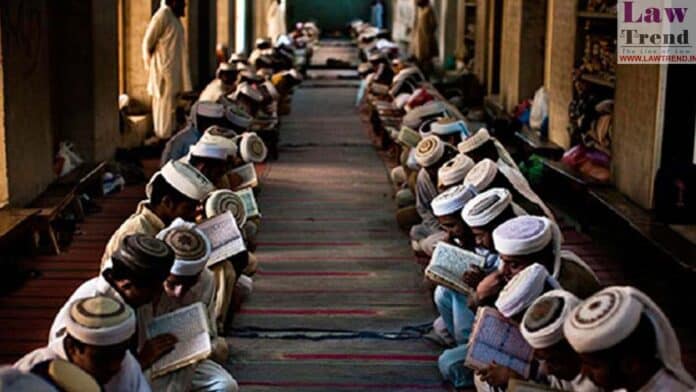The Allahabad High Court has stayed an inquiry initiated by the Economic Offences Wing (EOW) into 558 aided madrassas across Uttar Pradesh, following directions issued by the National Human Rights Commission (NHRC).
The probe stemmed from a complaint filed by one Mohammad Talha Ansari alleging human rights violations in the functioning of these institutions. Acting on the complaint, the NHRC had passed orders on February 28, April 23, and June 11, prompting the state government to issue a consequential order for the inquiry on April 23.
The madrassas approached the high court challenging the NHRC directives as well as the state government’s follow-up order, arguing that the inquiry was without jurisdiction. They contended that under Section 12 of the Protection of Human Rights Act, 1993, the powers of the NHRC are specifically defined, and Section 36(2) prohibits the Commission from inquiring into matters older than one year from the date of the alleged violation.
It was further submitted that under Section 12-A, the NHRC can take cognisance of cases suo motu, on a victim’s petition, or on a court’s direction. However, none of these conditions were met in the present matter. The petition also highlighted that the complaint was vague and lacked a specific date of the alleged violations, making it impossible to ascertain whether the claim was filed within the statutory one-year period.
A bench of Justices Saral Srivastava and Amitabh Kumar Rai, after hearing the submissions, stayed the NHRC and state government’s orders. The court has issued notices to the NHRC and the complainant, seeking their replies within four weeks. The matter has been listed for further hearing on November 17.
The bench’s interim order effectively halts the EOW’s probe until the issue of jurisdiction and validity of the NHRC’s directions is determined.




